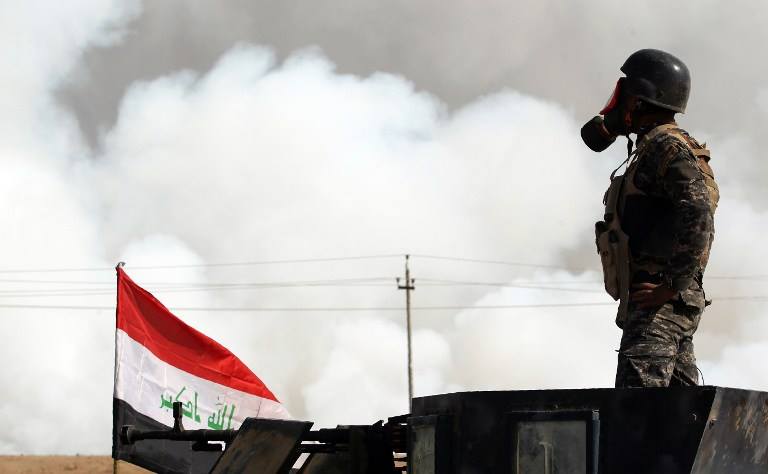The Mosul offensive has officially begun. In a recent report by BBC, ISIS has already begun using civilians living in areas under their control as human shields. Mosul is the final self-proclaimed Islamic State (ISIS) stronghold in Iraq, according to multiple news sources.
This is ISIS’ final stronghold in Iraq. They have also lost control over Fallujah, Tikrit, and Ramadi, according to CNN. If Iraqi forces are successful in taking back Mosul, then a large part of the territorial aspect of ISIS’ caliphate will no longer exist.
Suffolk professor Nir Eisikovits, director for graduate programs in Ethics and Public Policy with a focus on the ethics of fighting terrorist organizations has been following the conflict. He believes that as ISIS loses territory, their reputation is damaged as well.
“This is important because part of the religious appeal of ISIS is in its promise to create a new Islamic Empire or Caliphate,” said Eisikovits.
The offensive is being led primarily by Iraqi and Peshmerga forces, as well as some paramilitaries. They by American allies as well as roughly 500 United States troops, according to CNN reports from Monday. There are an estimated 108,500 forces fighting ISIS. It is estimated that there are between 3,500 and 5,000 ISIS fighters in Mosul, according to CNN reports from Monday.
Mosul is currently home to more than one million civilians. United Nations relief officials expressed extreme concern about the displacement of these individuals as forces continue their way into Mosul.
“There are real fears that the offensive to retake Mosul could produce a humanitarian catastrophe resulting in one of the largest man-made displacement crises in recent years” said William Spindler, the spokesperson for the Office of the UN High Commissioner for Refugees, in a video taken of a UNHRC meeting in Geneva, on Tuesday.
According to Eisikovits, the civilians still living in Mosul will most likely cause the offensive to take longer than it would have otherwise.
“It will take time and will likely be bloody and result in numerous civilian deaths,” said Eisikovits.
This city is strategically important to ISIS because it is a key trading hub that is located near the Syrian and Turkish borders. Mosul is also located near some of Iraq’s most important oil fields, according to Eisikovits.
There is an estimated 1.2 to 1.5 million civilians that could potentially be affected by the military operations in Mosul, According to a press release from the Office for Coordination of Human Affairs (OCHA). The statement outlined concerns from the U.N. that these civilians could become caught in the cross fire as they try to escape the city, or that ISIS will use them as human shields.
U.N. Humanitarian Chief Stephen O’Brien released a statement on Iraq on behalf of OCHA in which he said, “I renew my call on all parties to the conflict to uphold their obligations under international humanitarian law to protect civilians and ensure they have access to the assistance they are entitled to and deserve.”
The offensive could take as long as three months, according to multiple news sources.
The more difficult task is still ahead, According to Eisikovits. Ousting ISIS from Syria is going to be a challenge due to the Civil War they are in. “It will be harder to achieve victories against ISIS there, as it will require coordination with the Russians and, ultimately, with the forces loyal to the Syrian president, Assad,” he said.
In June 2014, Iraq’s second largest city fell after the Iraqi army surrendered it to ISIS. Abu Bakr al-Baghdadi declared that he had established an Islamic state. Recently, Iraqi forces have been looking to take back their city with a hard offensive push, according to multiple news sources.








